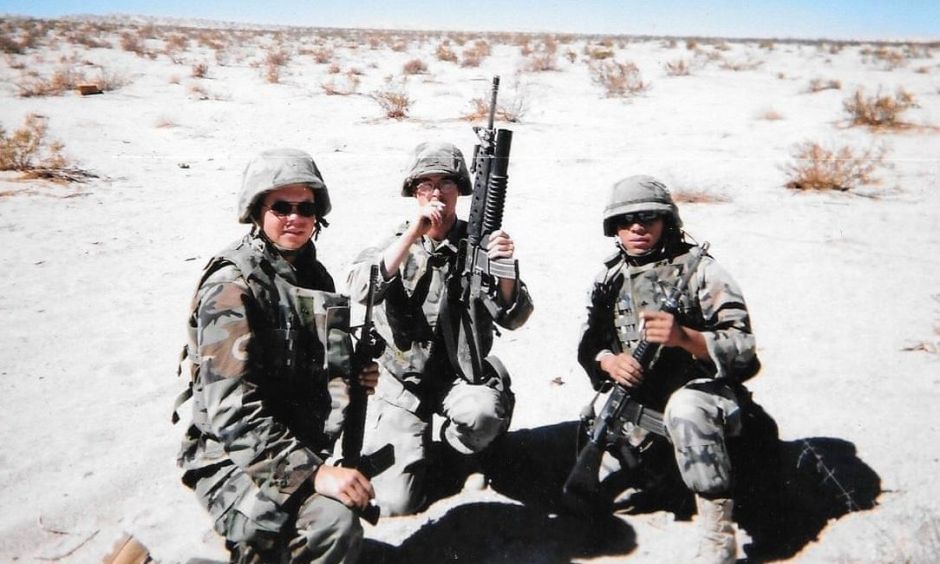When the country needed José Segovia, the young man raised his hand and risked his life for this nation, but when the young man needed help, the country he served decided to deport him.
The deportation of José Segovia Benítez to El Salvador cannot be described in any other way, but as an antipatriotic act.
Regardless of whether he was a citizen or not, the simple fact of having risked his life to defend the country where he lived since he was three years old, gave him enough merits to be treated as a US citizen.
The 38-year-old who grew up in Long Beach did what millions of Americans would not be able to do. He joined the armed forces. He risked his life and fought like a true patriot of this country.

He considered that it is not enough to hug the flag of the stars and stripes, or stand up when the national anthem is heard, or say "I am a true patriot" when the person was not able to wear a uniform of the armed forces.
Well, Segovia did, and he did it for a country where he wasn't born. It is a situation that has double merit.
The young man was sent twice to Iraq. He did not enter the armed forces to obtain legal documents. No, he was already a resident. He simply did not finish the naturalization process, but with the fact of having served the country, he was technically already an American and, much more patriotic than millions who were born in this nation and do nothing.
But apparently it was not enough for Governor Gavin Newsom, who decided not to forgive him and let Segovia be deported to a country he doesn't know, regardless of his medical condition.
Yes, Segovia returned with a brain injury from Iraq and it was never treated properly. Thus began a series of errors that would take him to jail and last Wednesday to his deportation.
Although at this point, the type of crime for which Segovia had been imprisoned was irrelevant.
Segovia had already served as an American and thus had to be treated, although the punishment involved a long prison sentence, but within the country for which he fought. And close to his family.
Worse, Segovia is deported to a nation where people escape for fear of gang violence; The young man has tattoos and his family fears that he may be a victim of the gang crime that plagues the Central American country.
As an American who once wanted to enter the army, but due to age it was no longer possible, I feel ashamed that when the country needed Segovia, the young man raised his hand and risked his life for everyone. But when Segovia needed help, there the country he served decided to deport him.
Agustín Durán, editor of Metro in La Opinion







